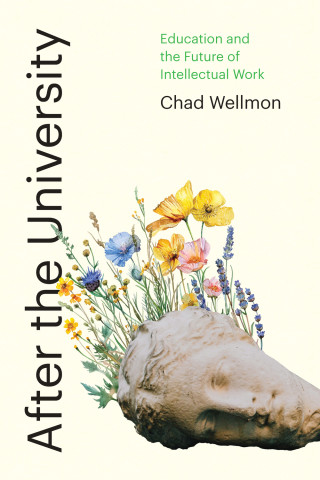
Reviews
An important story, told by Wellmon... His exposition is deeply grounded in intellectual, rather than social, history.
Organizing Enlightenment is an intriguing book for readers with significant prior knowledge of educational and German history...this reviewer found the material on lexica and encyclopedias a fascinating new perspective.
The original analysis of select texts and the general élan with which the book is written nevertheless render Organizing Enlightenment an invaluable item for anyone reflecting on the current sense of crisis in academia. Tracing the invention of an idea of the research university rather than the genesis of the institution itself, this book is a welcome contribution to controversies over information overload and the control of knowledge.
A timely and provocative book written with contemporary debates in mind, Organizing Enlightenment gives us an impressive history not of academic disciplines but of disciplinarity itself—the infrastructure of specialization that has come to characterize the modern research university. What is the point of specialization? What is the role of the book within learning? Are lectures outmoded or sources of enlivened knowledge? Organizing Enlightenment helps us understand how specialization is not a new problem to be solved but the answer to an older problem of media surplus which we still inhabit. The more we hear calls for the reform of research universities today, the more we will need such insightful and clearly written histories as this one.
The crisis of the university in the age of MOOCs and the new media? As Chad Wellmon shows in this learned and lucid study, we've been there before, several times. Tracing the development of the university from the shock of the print revolution in the seventeenth century, to the rise of the utilitarian knowledge factory in eighteenth-century Göttingen and Halle, and to the emergence of the research university in nineteenth-century Berlin, Wellmon gives us a thought-provoking account of an astonishingly resilient institution. He also offers rich material for reflection on the meaning of the life of the mind, whether pursued in the classroom, the library, the laboratory—or online.
Chad Wellmon’s erudite and brilliantly conceived study shows the key role of research universities in developing modern information culture. From the seventeenth to the twentieth centuries, universities have played a central role in how information has been acquired, collected, preserved and shared. Wellmon shows just how essential research universities have been in the creating a modern culture of information management, from Google to Wikipedia. Even more, Wellmon shows that the freedom and intellectual independence of modern universities is key in the development of future information technology and the maintenance of political freedom. Organizing Enlightenment shows just how much our own technologies and freedoms grew directly from German university traditions. It is eye-opening history and necessary reading for anyone who thinks the humanities play a secondary role to technology.
Book Details
Acknowledgments
Introduction
1. Science as Culture
2. The Fractured Empire of Erudition
3. Encyclopedia from Book to Practice
4. From Bibliography to Ethics
5. Kant's Critical Technology
6. The Enlightenment
Acknowledgments
Introduction
1. Science as Culture
2. The Fractured Empire of Erudition
3. Encyclopedia from Book to Practice
4. From Bibliography to Ethics
5. Kant's Critical Technology
6. The Enlightenment University and Too Many Books
7. The University in the Age of Print
8. Berlin, Humboldt, and the Research University
9. The Disciplinary Self and the Virtues of the Philologist
Afterword
Notes
Bibliography
Index






